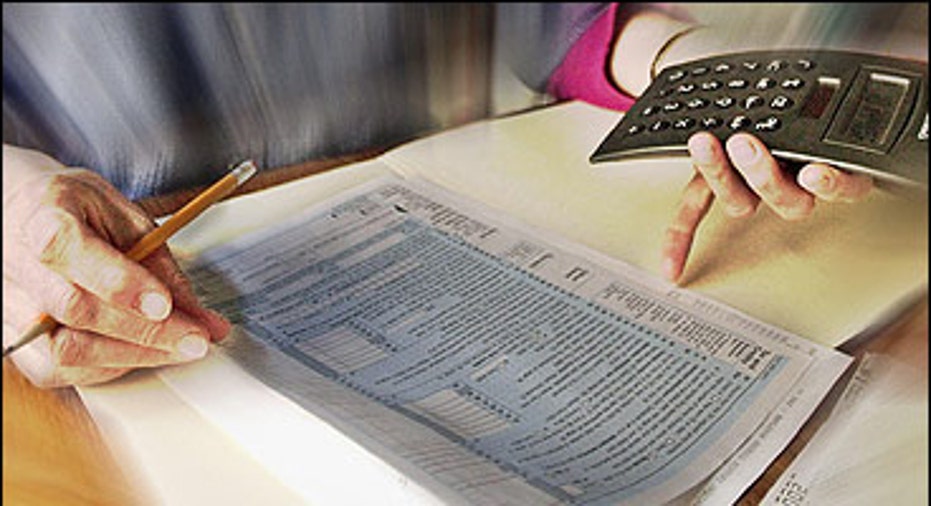Don’t Forget to List These Taxes You Can Deduct

Most of us remember to list property taxes and taxes paid to the state on Schedule A of Form 1040. But a closer look at this section could reveal that you’ve been overlooking possible deductions and including items that might not be eligible and would be disallowed in an audit.
First let’s dissect a few of the so-called obvious deductions:
Property Taxes. You would think this is a slam dunk. After all, you cut a check to the county for payment of your property taxes and that’s the number that goes on your tax return. Wrong. It used to be that during an audit the IRS would not comb through a filer’s property tax bill and disallowed a portion of it, but with deficits running high, the IRS and particularly state governments are all over this deduction.
Here’s the thing: You can deduct state, local, or foreign taxes paid on real property that are levied for the general public welfare. This will include assessments that improve sidewalks, streets, etc. But it does not include assessments that increase the value of your property. Even within this narrow definition there are more requirements. For example, an assessment for the repair and resurfacing of streets is a deductible tax. However, an assessment levied for the lengthening or widening of the streets is not. Before listing any deduction, it’s advisable to check with your governing agency or your tax pro.
Any assessments that are not deductible should be added to the basis of your property. You should maintain a file with all the receipts for your home improvements and other transactions that increase the basis of your home. This file should also include a copy of any property tax bills that show these nondeductible assessments. When the time comes to sell your home, your profit will be reduced by these amounts and you’ll be glad you kept an organized paper trail.
You cannot deduct the portion of your property tax bill that is allocated to services such as your $20 monthly trash pickup bill. However, if the funds are used to maintain or improve services such a trash collection or fire and police protection and the funds aren’t earmarked but go into the general revenue fund then you can deduct them.
Is that confusing enough for you?
DMV Fees. If you look closely at your vehicle registration bill, you will find a breakdown of the total amount to various taxes, registration and license. Your state government will usually indicate which part of this list is deductible. For example, in California the only amount that is deductible is the license fee.
Property Taxes for Timeshare. If you own a timeshare in which you also hold the deed of trust, you may write off the portion of the annual maintenance fee that is allocated to property taxes.
Personal Property Taxes. If you live in an area that levies personal property taxes, you may deduct these payments. This is generally a local or state tax levied on your property’s value.
If the property upon which this tax is levied is used for self-employment activities, pay the tax from your business account and deduct it on your Schedule C or other business income tax return.
General Sales Tax. This provision will benefit taxpayers who live in states that do not levy an income tax. You cannot deduct both. So you have a choice, you can either deduct your income taxes paid or the general sales tax which is based on a table. Check to see which works better for you.
Normally, state income taxes paid would be a higher deduction unless you made major purchases in which you paid large amounts of sales tax. Note that state income taxes also include state disability insurance withheld from your pay that is paid to the state.
Foreign Income Taxes. You can deduct amounts paid to foreign countries either as an itemized deduction or as a credit on form 1040, line 47. You may have to complete Form 1116.
Self-employment tax. One half of the amount paid for self-employment tax is deducted under adjustments to income on Line 27 of Form 1040.
Estate Taxes. If you, a beneficiary, must include income belonging to a deceased person in your gross income, you may deduct the corresponding tax but only as a miscellaneous itemized deduction subject to the 2% AGI haircut. Check with your tax pro.
You cannot deduct the following taxes:
- Federal income taxes paid
- Homeowner association dues
- Licensing for any personal purposes: marriage license, fishing license, pet licenses, driver’s license, passport fees
- Utility and excise taxes
- Transfer or stamp taxes
- Fines and penalties – no speeding tickets, parking tickets or other fines
- Gift taxes – those are added to the basis of the property given
Bonnie Lee is an Enrolled Agent admitted to practice and representing taxpayers in all fifty states at all levels within the Internal Revenue Service. She is the owner of Taxpertise in Sonoma, CA and the author of Entrepreneur Press book, “Taxpertise, The Complete Book of Dirty Little Secrets and Hidden Deductions for Small Business that the IRS Doesn't Want You to Know.” Follow Bonnie Lee on Twitter at BLTaxpertise and at Facebook.



















